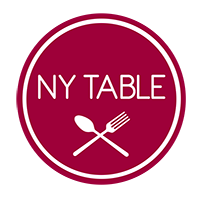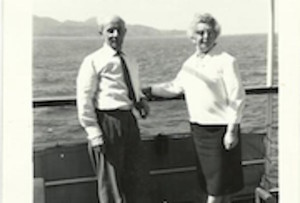The dish on identity
It was last December when two friends and I decided we’d finally venture into the French restaurant on Broadway for lunch. Though I’ve considered myself a Francophile for as long as I can remember – obsessed with the language though still unable to speak it – I’ll admit that my weak spot is not knowing much about French cuisine. I’ve always known that I like baguettes and escargot and crêpes, but never really attributed – perhaps subconsciously – these foods to “authentic French culture,” whatever that may mean.
Born in South Africa to German parents, I consider myself as much South African as I do German. My maternal grandparents immigrated to South Africa in the 60s shortly after my mother was born. Despite no plans to return to Germany, my grandparents – my Oma and Opa – still consider themselves exclusively German (and like many stereotypical Germans living in South Africa, say that they are only there for the sunny weather). But it wasn’t until I discovered that my Oma’s father was born in Alsace-Lorraine that I insisted our family must have some French heritage – what else could explain my affinity to France? My Oma, born in Hamburg, Germany, brushed off the idea. We’re German – no need to dwell on the past, she’d say.
In the restaurant on Broadway that December afternoon, while deciding what to eat, I saw on the menu a French dish that I had somehow forgotten about. Immediately, and proudly, I told my friends, “My grandmother makes the best French onion soup!” – which she did, despite her protestations about being German. It was also then that I suddenly realized that this would be my first Christmas alone and my first Christmas away from home.
As a young boy, Rudolph Begemann – my Oma’s father – and his family were forcefully removed from Alsace-Lorraine during World War 1, and the family resettled in what was then undisputed German land. Years later, as a young man, Rudolph found a job in Hamburg, where he met his wife Anita. Aware of Rudolph’s love for the way his mother used to make French onion soup – the way she was taught back in Alsace-Lorraine – Anita would learn the recipe. And eventually, my Oma would learn how to make the beloved dish as well.
I ordered the French onion soup and enjoyed it – I think. I don’t actually remember being too concerned about its taste as my mind couldn’t help but think back to the way my Oma made it: “perfect,” is what everyone in the family would say. There are no secrets to the recipe either. It is simple: lots of fried onions, add beef stock, and simmer until onions are soft. Add Mediterranean herbs and spices. Finish off with croutons and grated cheese.
Despite three years of home economics in high school, I’m not the best cook (in fact, I haven’t cooked a single meal for myself since moving to New York). But that December afternoon while eating the foreign French onion soup, I suddenly felt the urge to learn how to make the soup the way Oma does, even if all it does is further affirm my Francophilia.
But I haven’t tried making the soup yet. I’m waiting to go home so that my Oma or mother can teach me how. Better yet would be to have both of them in the kitchen.
In the bigger scheme of what it means to my family and my ancestors, maybe it is my responsibility to ensure that the recipe can be passed on to the next generation, wherever they may end up living one day. Who knows how many more countries will be added to the list that the recipe has traveled through, sparking questions of identity and what it means to be a family.


Your Comments